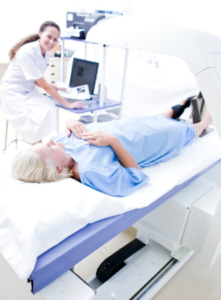How to Prepare for Your Diagnostic Test: A Step-by-Step Guide
Understand the Test You’re Taking
The first step in preparing for any diagnostic test is understanding what the test is for and what it involves. Different tests require different levels of preparation, so it’s important to ask your healthcare provider or diagnostic center about the specific test you’ll be undergoing. Common diagnostic tests include:
Blood tests: Such as a Complete Blood Count (CBC), lipid profile, or blood glucose test.
Imaging tests: Including X-rays, ultrasounds, CT scans, or MRIs.
Cardiac tests: Such as ECG (electrocardiogram) or echocardiogram.
Urine tests: Including routine urine analysis or 24-hour urine collection.
Make sure you fully understand the purpose of the test and what results your doctor is looking for. This will help you follow the preparation guidelines more effectively.
Follow Dietary Restrictions (If Required)
Many diagnostic tests, particularly blood tests, require fasting or avoiding certain foods before the procedure. For instance, a fasting blood glucose or lipid profile test often requires you to avoid eating or drinking (except water) for 8 to 12 hours before the test. Some imaging tests may also have restrictions on food or liquids.
What to do:
Confirm with your doctor or the diagnostic center whether fasting is necessary for your specific test.
Stick to the fasting instructions carefully to avoid skewing the results.
For non-fasting tests, it’s generally advisable to eat a light meal and avoid heavy or fatty foods beforehand.
Stay Hydrated
For many tests, such as blood draws or urine tests, staying hydrated is important. Proper hydration can make it easier for the healthcare provider to locate veins, and in the case of a urine test, it helps ensure you can provide an adequate sample.
What to do:
Drink plenty of water the day before and the day of your test (unless your doctor advises against it for a specific reason).
Avoid excessive caffeine or alcohol, as they can dehydrate you or interfere with test results.
Wear Comfortable Clothing
If you’re undergoing an imaging test, like an ultrasound or MRI, or a physical examination, it’s important to wear comfortable, loose-fitting clothing. Some tests may require you to change into a hospital gown, but for others, such as an ECG or X-ray, wearing loose clothing makes the process easier.
What to do:
Wear clothes that are easy to remove, if necessary, and avoid wearing jewelry or accessories that may interfere with the test.
For imaging tests like MRIs, metal objects, including zippers and watches, can interfere with the results, so leave these items at home or remove them before the test.
Bring Necessary Documentation
Before your test, make sure you have all the required documents and information. This may include your doctor’s referral, medical records, insurance details, and any forms you need to fill out at the diagnostic center.
What to do:
Confirm with the diagnostic center what paperwork is required.
Bring your medical insurance card if applicable.
Arrive at least 10-15 minutes early to complete any registration forms or settle payments if needed.
Relax and Follow Instructions
It’s natural to feel nervous before a diagnostic test, especially if it’s your first time undergoing the procedure. However, most tests are straightforward and non-invasive. Focus on staying calm, following the technician’s instructions, and asking any questions if you’re unsure about the process.
What to do:
Practice deep breathing techniques if you’re feeling anxious.
Communicate any concerns to the technician or doctor performing the test.
Ensure you fully understand any post-test instructions or restrictions, such as when you can resume eating or taking medications.
Post-Test Care and Follow-Up
After your test, you may receive immediate results, or your doctor may need a few days to review the findings. Some tests may require rest or specific care afterward, so be sure to follow any post-test instructions.
What to do:
Ask your doctor when and how you’ll receive the test results.
Follow any post-test care instructions, such as staying hydrated after a blood draw.
Schedule a follow-up appointment if needed to discuss the results and next steps.




